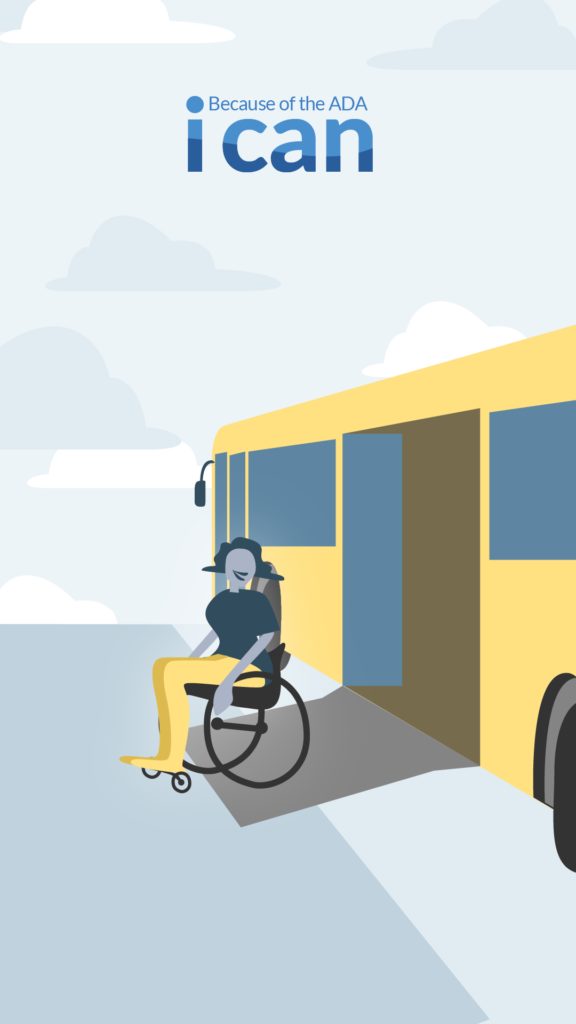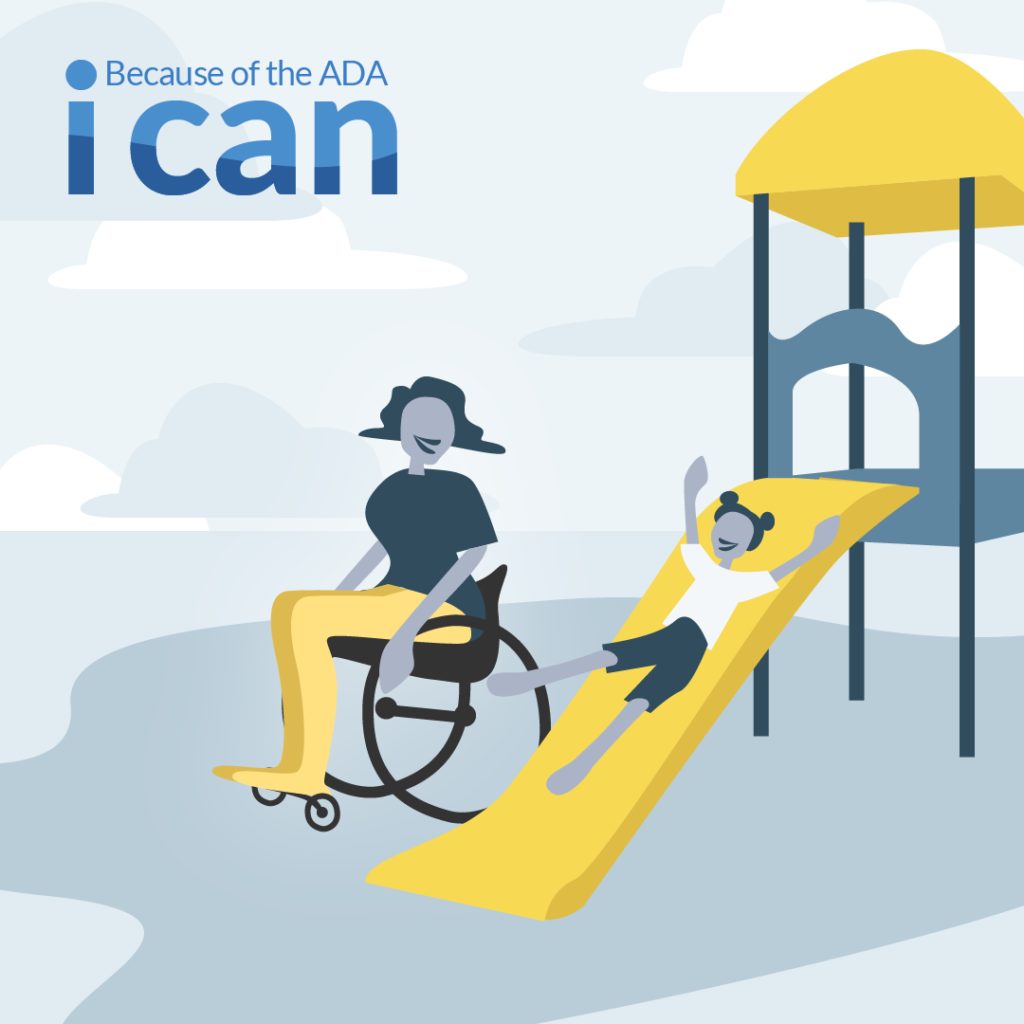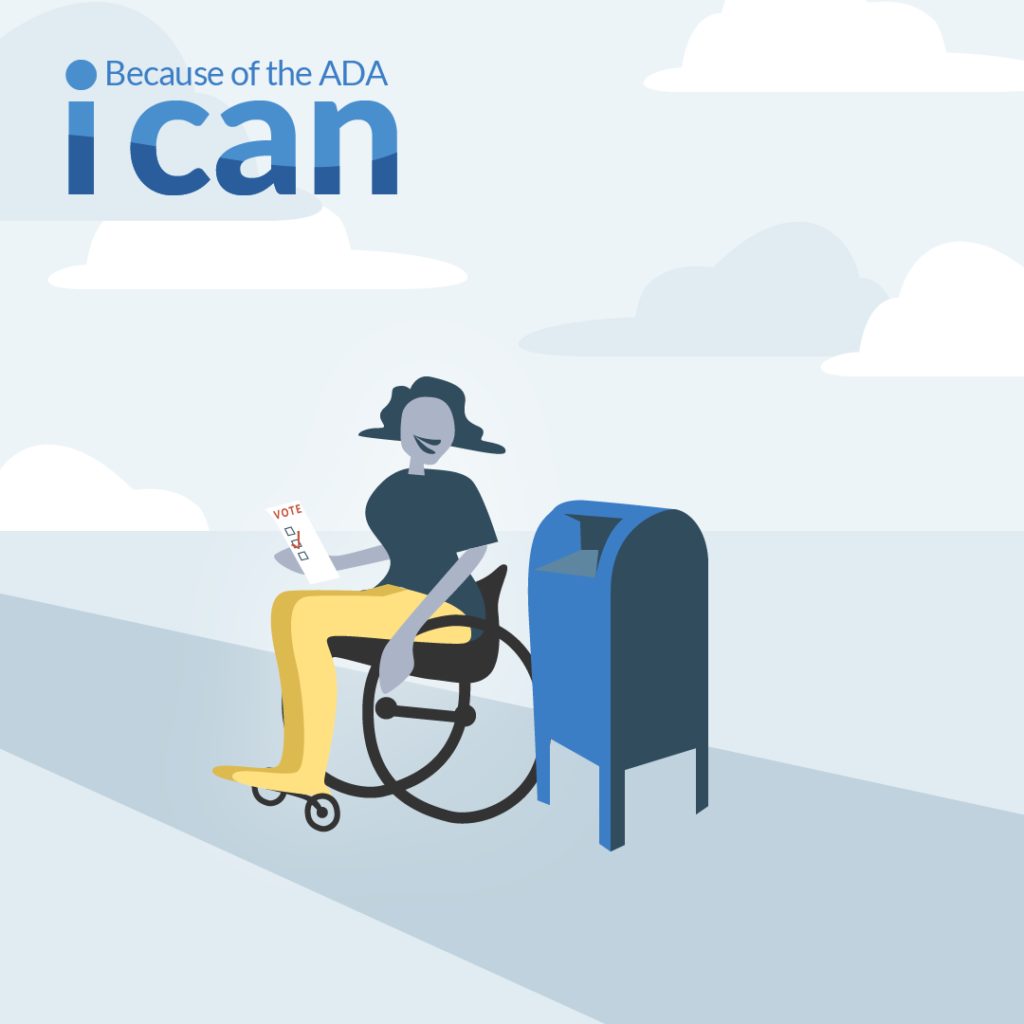January 25, 2022
Have you ever noticed that movies have subtitles? Or that most public doors have lever-like handles instead of round doorknobs? Or that some bathroom stalls are big enough for a wheelchair? How about how curbs are flat at crossings? Or how public transportation has lifts? (The list just gets longer from here.)
This is because in 1990, congress passed the American with Disabilities Act (ADA) written by Tony Coelho. The purpose of ADA is to “make sure that people with disabilities have the same rights and opportunities as everyone else.” While the 1990 law only affected people with physical disabilities, in 2008, it was expanded to include everyone with a disability. This includes mental, emotional, and other invisible disabilities.
Here are a few ways that the ADA affects your life (in ways you might have never noticed).
How the ADA Affects Transportation
Getting from one place to another is an important fact of life, especially when it comes to getting to work. The ADA took steps to make sure that everyone can use the public transportation system, from trains to buses and elevators.

- Lifts for buses and other public transport
- Handles instead of round knobs on doors
- Service animals allowed everywhere they are needed
- Visual and audio alarms
- Level boarding and narrow gaps between train doorways and station platforms
- Curb ramps in sidewalks and entrances
- Maintained, functioning elevators and escalators
- Braille in elevators
- Accessible restrooms, including larger stalls and grab bars
- Accessible parking spaces
- And so much more
How the ADA Affects Employment
Everyone should be able to work and earn money for themselves. The ADA created guidelines that help workplaces be more accommodating to people with disabilities. This includes shifting work schedules to adding screen readers.

- Supplying or changing equipment to be accessible
- Jobs can be restructured to be accessible
- Work schedules can be adjusted to fit needs
- Reassignments to a vacant position
- Examinations, training materials, or policies adjusted to be accessible
- Supply readers and interpreters as needed
- And so much more
How the ADA Affects Government Buildings and Public Accommodations
Staircases and narrow hallways can be massive roadblocks for people with disabilities—and that’s just two examples. The ADA created building standards to guide both remodeling efforts and new construction. So people with disabilities can quickly and easily get where they need to go.

- Voting must be held in accessible locations or have mail-in ballot alternatives
- Government buildings must be accessible
- Transportation to government buildings must be provided
- Discrimination in public programs, activities, or services is prohibited
- Sets standards for building alterations
- New constructions must meet accessibility standards
- Removes the barriers from existing buildings when such modifications are “reasonable”
- And so much more
3 Things the ADA Does Not Do
While the Americans with Disabilities Act (ADA) does a lot, there are a few important things the ADA does not do. These distinctions are important to prevent misunderstandings, especially in the workplace.
The ADA does not…
- Include a comprehensive list of conditions that are considered disabilities (though it does give some general guidelines)
- Protect people with disabilities from getting fired (it only protects people from getting fired because of their disability)
- Include requirements for religious institutions or private clubs
Helping Improve Equality for Over 32 Years
For over three decades, the ADA has been helping everyone in the United States be more aware of accessibility. Why is this important? Over 61 million adults in America have a disability. That’s means one in every four people has a disability.
So from elevators to voting and so much more, let’s celebrate all the ways the ADA has helped bring equity and inclusion to a huge part of the American people.
